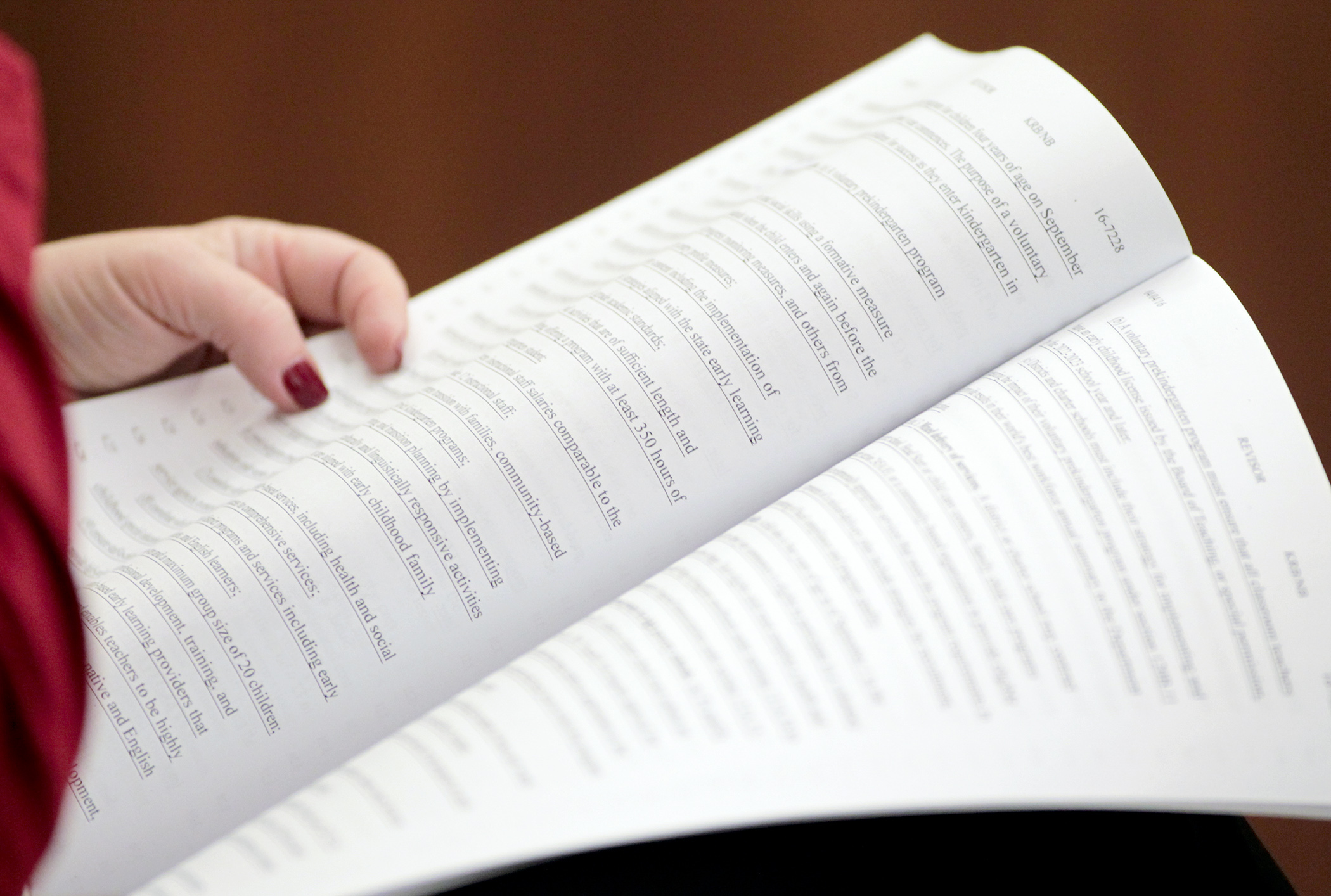Voluntary pre-k, new teacher grants top governor's K-12 supplemental budget

Establishing a voluntary prekindergarten program and developing the teacher workforce are top priorities of Gov. Mark Dayton’s supplemental budget recommendations for K-12 education.
Education Commissioner Brenda Cassellius presented the $60.8 million proposal to the House Education Finance Committee at an informational hearing Thursday. The recommendations are reflected in HF3813, sponsored by Rep. Jenifer Loon (R-Eden Prairie), which awaits action by the House Rules and Legislative Administration Committee. A companion, SF3482, sponsored by Sen. Chuck Wiger (DFL-Maplewood), awaits action by the Senate Education Committee.
The recommendations are aimed at closing achievement gaps and improving graduation rates, with a focus on early education and teacher workforce development, Cassellius said. The largest investment would be $25 million in Fiscal Year 2017, $40 million in Fiscal Year 2018 and $60 million in Fiscal Year 2019 for districts to establish voluntary prekindergarten programs.
Rep. Paul Marquart (DFL-Dilworth) applauded the prekindergarten recommendations.
“Anytime you add money to preschool, I think that’s the way to go,” he said.
The governor’s proposal also includes $12.4 million in funding intended to address the teacher workforce shortage, including $10 million in “future teachers” grants and $2 million for paraprofessionals employed in high-need districts to obtain teacher licenses. Cassellius said the department estimates the proposals would result in 1,200 new licensed teachers in the state.
A one-time appropriation of $4.3 million to upgrade Education Department computer systems can’t wait, said MN.IT Services Commissioner Tom Baden. The funding, part of the governor’s overall cybersecurity package, is a “basic block and tackle” upgrade to address security risks and improve security in the system, parts of which are more than 40 years old, Baden said.
Other supplemental budget recommendations include the following one-time appropriations:
- $10 million for teacher development and evaluation aid;
- $2.75 million to implement Positive Behavioral Interventions and Supports programs in districts to promote “positive school culture";
- $2 million in additional funding for full-service community schools, which incorporate multiple support services for children and families;
- $1 million to establish a statewide early identification and referral system for children up to age eight to identify needs and help families access available programs; and
- $120,000 to cover GED test fees for eligible adults.
Cassellius said increases in graduation rates are resulting in fewer adults taking the GED, but the $120 testing fee still prevents some adults from taking the test.
“The more barriers we can remove, the greater opportunity we create,” she said.
Related Articles
Search Session Daily
Advanced Search OptionsPriority Dailies
Ways and Means Committee OKs proposed $512 million supplemental budget on party-line vote
By Mike Cook Meeting more needs or fiscal irresponsibility is one way to sum up the differences among the two parties on a supplemental spending package a year after a $72 billion state budg...
Meeting more needs or fiscal irresponsibility is one way to sum up the differences among the two parties on a supplemental spending package a year after a $72 billion state budg...
Minnesota’s projected budget surplus balloons to $3.7 billion, but fiscal pressure still looms
By Rob Hubbard Just as Minnesota has experienced a warmer winter than usual, so has the state’s budget outlook warmed over the past few months.
On Thursday, Minnesota Management and Budget...
Just as Minnesota has experienced a warmer winter than usual, so has the state’s budget outlook warmed over the past few months.
On Thursday, Minnesota Management and Budget...